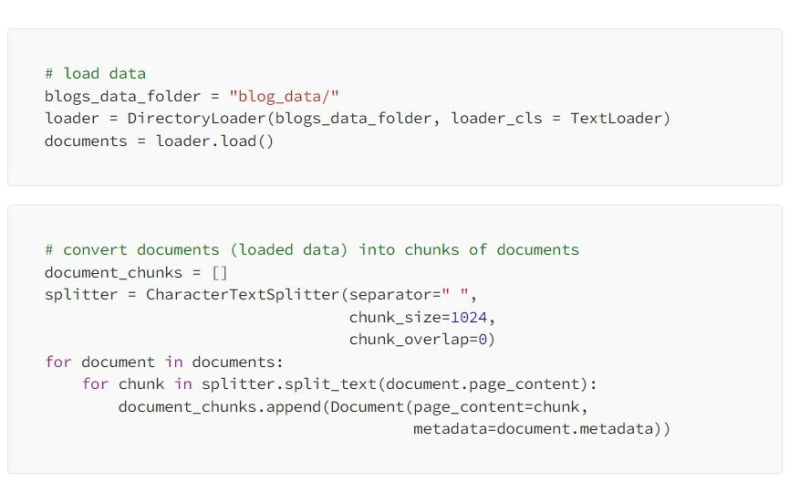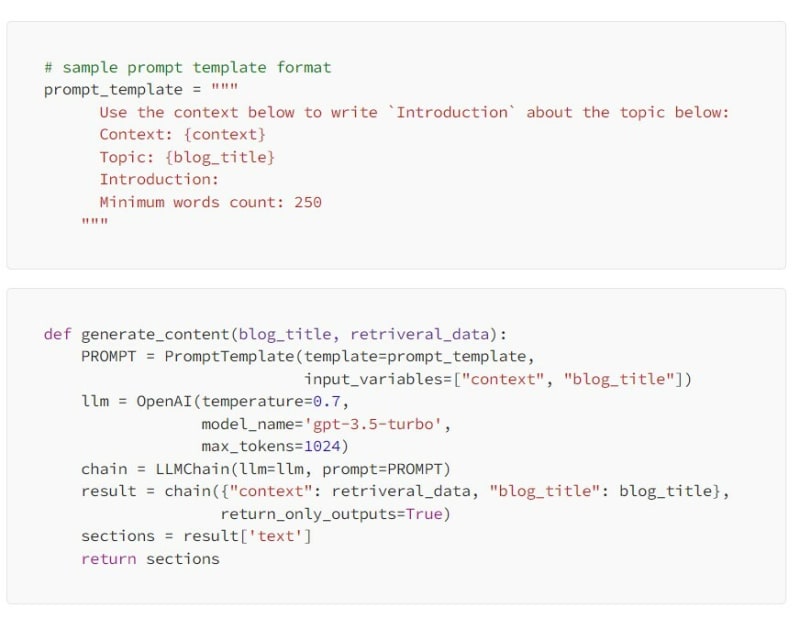Power of Langchain and OpenAI GPT
In the ever-evolving field of artificial intelligence, large language models (LLMs) have emerged as powerful tools for understanding and generating natural language. Their ability to process and generate human-like text has paved the way for a wide range of applications. Lang Chain, a groundbreaking framework, takes LLMs to new heights by seamlessly connecting them with other data sources and enabling the development of diverse applications such as chatbots, question-answering systems, and natural language generation systems.
Understanding Lang Chain
Lang Chain is a framework designed to bridge the gap between LLMs and their surrounding environments. It empowers developers by facilitating the creation of applications that harness the capabilities of LLMs and leverage data from various sources. By making LLMs aware of different data types, Lang Chain enhances their contextual understanding, leading to more accurate and relevant responses.
Article Generation USE-Case
Data Collection and Preparation:
To utilize Lang Chain effectively, the collection and preparation of data are crucial steps. Developers load data into the framework and create data chunks that serve as building blocks for LLMs. These chunks play a vital role in enhancing the language model’s understanding and contextual awareness, enabling it to generate more precise responses. Through Lang Chain, LLMs can tap into a wealth of information from structured databases, unstructured documents, and even user-generated content.
Creating Embeddings
Another essential aspect of Lang Chain is the creation of embeddings. Embeddings are representations of words or sentences in a vector space, which capture semantic relationships and contextual information. By mapping textual data into a numerical format that can be easily processed, Lang Chain enhances the language model’s ability to generate coherent and contextually appropriate responses.
Chroma is the open-source embedding database. Chroma makes it easy to build LLM apps by making knowledge, facts, and skills pluggable for LLMs.
Retrieving Document Data
In order to generate a well-informed article, we utilize Lang Chain’s capabilities to retrieve the most relevant document chunks based on our blog title. This ensures that our article draws from authoritative sources and is tailored to address the specific topic of interest.
Generating Article Content
To create engaging and organized articles, we utilize the information extracted from document chunks with respective to blog title, employing custom prompt templates and the powerful OpenAI GPT-3 language model.
Our approach involves structuring the article with an introductory section, followed by relevant subheadings that address the chosen blog title. Additionally, we incorporate a section for frequently asked questions (FAQs) and conclude the article with a concise summary.
By leveraging the retrieved data and the capabilities of OpenAI, we generate content for each section and seamlessly merge the resulting responses into a well-crafted article.
conclusion
In conclusion, Lang Chain represents a significant advancement in the integration of large language models (LLMs) within the field of artificial intelligence. This groundbreaking framework bridges the gap between LLMs and their surrounding environments, allowing for seamless connectivity and enhanced contextual understanding. By leveraging data from various sources and empowering developers to create applications that harness the power of LLMs, Lang Chain opens up new possibilities for chatbots, question-answering systems, and natural language generation systems.
Through efficient data collection and preparation, the framework optimizes LLMs’ ability to generate accurate and contextually relevant responses. By leveraging the retrieved document chunks and utilizing custom prompt templates with the OpenAI GPT-3 language model, Lang Chain facilitates the creation of engaging and well-structured articles.
Overall, the collaborative efforts of Lang Chain and OpenAI revolutionize the integration of AI, unlocking the full potential of language models and paving the way for future advancements in natural language processing and generation.










Top comments (1)
Hello! Welcome to de Dev Community!
Interesting article!
You know, you can put code snippets in the articles by using backticks, for example...
```js
function helloWorld(){
console.log("Hello World");
}
helloWorld();
```
Would show in the article something like:
Hope it helps!